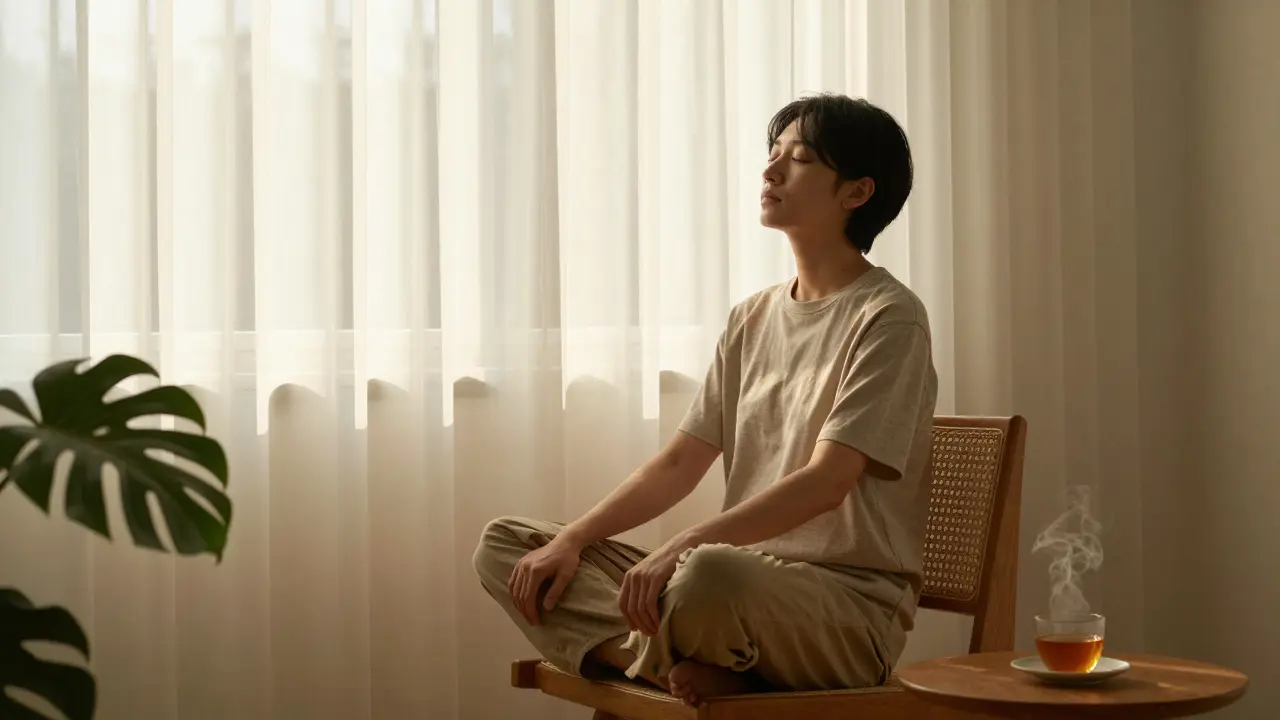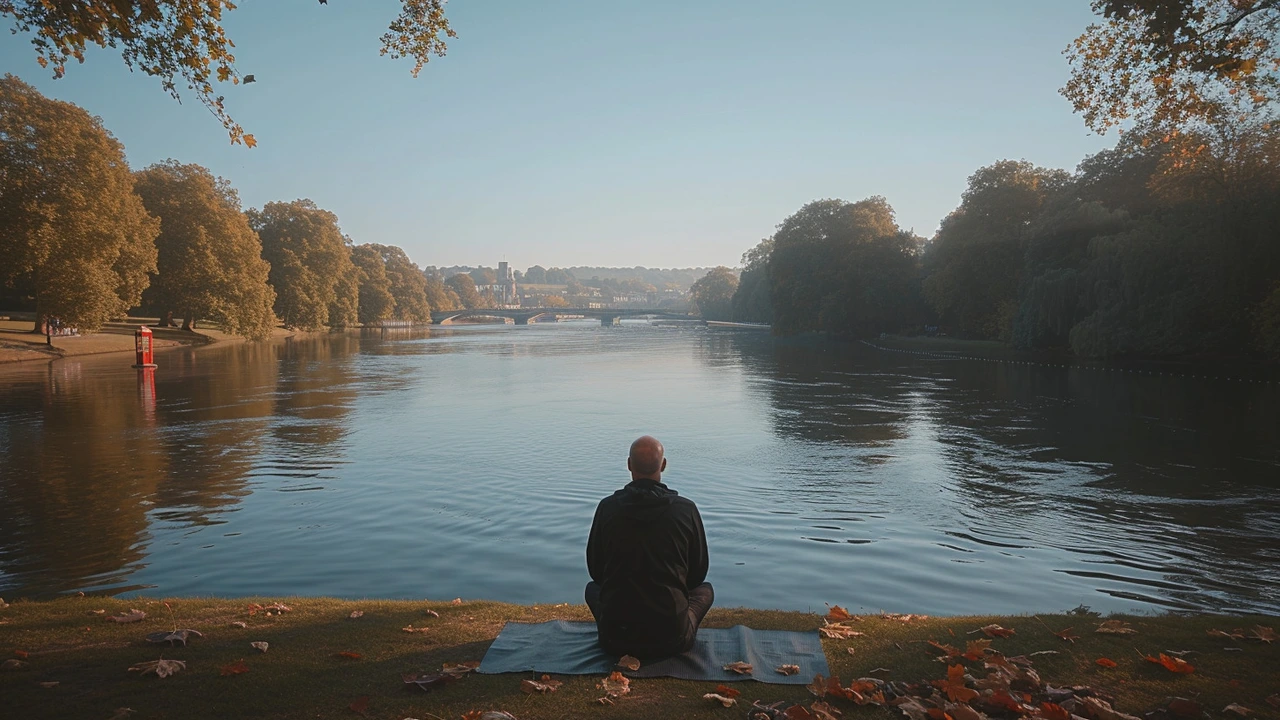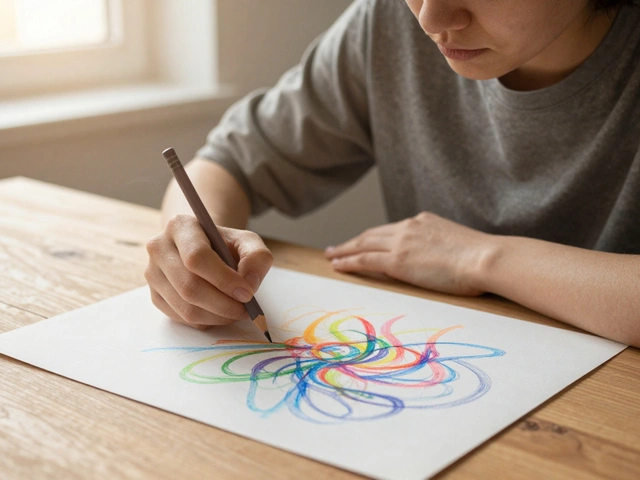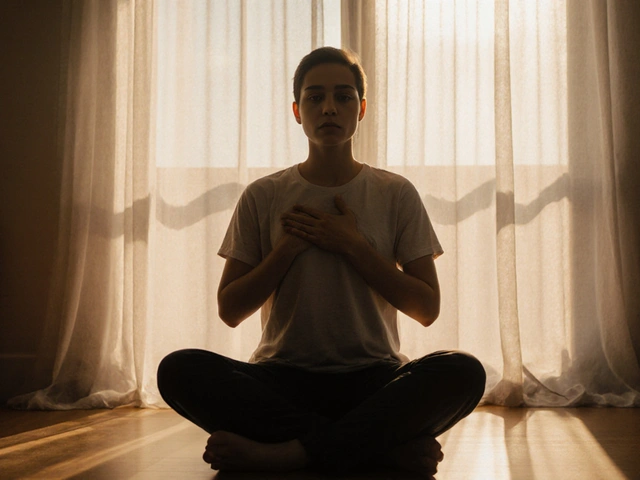Anxiety Relief: Simple Ways to Calm Your Mind Now
Anxiety hits your body long before your mind trusts what's happening. A racing heart, shallow breathing, and a tight jaw are signs you can act on. Use quick, repeatable moves to interrupt the cycle. These tools work whether you feel mild worry or a panic spike.
Quick tools to stop panic fast
Box breathing: inhale for four, hold four, exhale four, hold four. Repeat five times. Grounding 5-4-3-2-1: name five things you see, four you hear, three you touch, two you smell, one you taste. Progressive muscle relaxation: tense each muscle group for five seconds, then release. Cold water on your face or a brief splash helps reset your nervous system.
Daily habits that ease anxiety
Small daily routines add up. Sleep matters: aim for a consistent bedtime, even if you struggle occasionally. Move your body: a 20 minute walk lowers tension and clears thinking. Cut back on caffeine late in the day. Try creative outlets, drawing, music, or gentle yoga to shift focus without forcing it. Use a mindfulness app for guided sessions when you need structure.
Short routines beat big leaps. Pick one habit and do it three times this week. Track it in a note or calendar. Small wins lower the pressure to be perfect and make more calm moments likely.
Creative therapies help when words fall short. Painting, music, or dance give feelings somewhere to go. You don't need skill or fancy tools, use a pen, a phone, or a kitchen timer for a short session. If you respond to creativity, book a class or try a therapist who uses art or music work.
Mindfulness and simple meditation can change how you react over time. Start with three minutes daily. Focus on breath or a single word. When your mind wanders, notice and bring it back without judgment. Over weeks you'll notice less automatic worry and better focus.
When to get help: if anxiety stops you from working, caring for yourself, or leaves you feeling hopeless, reach out. A therapist can teach tools like CBT and exposure work. Medication is an option for some people and can make therapy more effective. Ask for a referral from your doctor or use a trusted clinic finder.
Quick plan you can try today: notice your breath for forty seconds, do one round of box breathing, and take a ten minute walk. Write one small goal for tomorrow. Repeat these steps three times this week and note how you feel.
If a particular technique helps, make it a habit. If nothing seems to stick, switch approaches or ask for professional support. You don't need to fix everything at once. Small, steady steps give the best long term change.
Try keeping a tiny anxiety log. Note the trigger, your reaction, and which tool you used. After two weeks review patterns. You might spot simple fixes like skipping late coffee or adding a short walk before stressful meetings. Tracking helps you learn what actually works for your life starting right this week.
Discover the Magic of Stress Reduction Techniques That Actually Work
Discover simple, science-backed stress reduction techniques that work in real life-not just in apps or retreats. Learn how breathing, movement, and sensory resets can calm your nervous system without expensive tools or hours of meditation.
View MoreMindfulness and Mental Health: How Daily Practice Heals Your Mind
Mindfulness isn't magic-it's a science-backed way to calm anxiety, reduce stress, and rewire your brain for better mental health. Start with five minutes a day and see the difference.
View MoreHarnessing the Power of Calmness to Combat Anxiety: Effective Strategies for Inner Peace
In today's fast-paced world, anxiety has become a common companion for many. However, amidst the chaos, calmness emerges as a powerful antidote to the storm of anxiety. This article delves into how adopting calmness can significantly alter your response to stress, offering a profound sense of peace and control. Discover practical techniques for cultivating a calm state of mind, understand the science behind the calming effects on the body and mind, and learn how to incorporate these strategies into daily life for lasting anxiety relief.
View More







